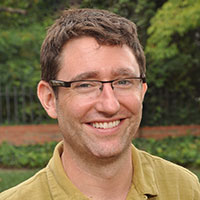Water Institute Researcher Wins ‘Editor’s Choice’ Award for Journal Article
July 20, 2017
Gillings School of Global Public Health
David Fuente, lead scientist for the focus areas of governance and regulation and of adaptation to climate extremes at The Water Institute at the University of North Carolina at Chapel Hill and doctoral student in UNC’s Department of City and Regional Planning, is senior author of an article that won a 2016 Editor’s Choice Award from the journal Water Resources Research (WRR).
The Water Institute at UNC is housed in the UNC Gillings School of Global Public Health.
Fuente and colleagues received the honor for the study, “Water and sanitation service delivery, pricing and the poor: An empirical estimate of subsidy incidence in Nairobi, Kenya,” published online in WRR on June 25, 2016.
Theirs was the only award in 2016 for an article in the area of systems, policy and economics and was presented in recognition that the work was of “extremely high quality and significance.”

Fuente and colleagues studied the increasing block tariff (IBT), a tariff structure used by water utilities around the world. Contrary to conventional wisdom, the researchers found that high-income residential and nonresidential customers in Nairobi, Kenya, received disproportionate shares of subsidies delivered through the tariff. They also determined that previous studies on subsidy incidence underestimate the magnitude of the subsidy delivered through water tariffs. Both findings have implications for the design and evaluation of water tariffs in developing countries.
“There are two things about Dr. Fuente’s research that I especially admire,” said Dale Whittington, professor of environmental sciences and engineering at the UNC Gillings School of Global Public Health and professor of city and regional planning in UNC’s College of Arts and Sciences. “The first is his willingness to challenge conventional wisdom and think outside the box. The second is his ability to actually conduct the fieldwork in Nairobi and obtain the primary data needed to convincingly prove his argument.”
Whittington is Fuente’s adviser and a co-author of the article.
Other co-authors are Josephine Gakii Gatua, of the School of Business, Economics and Law at The University of Gothenburg, Sweden; Moses Ikiara and Jane Kabubo-Mariara, of the Environment for Development Kenya, in Nairobi; and Mbutu Mwaura, of the Nairobi City Water and Sewer Company.
